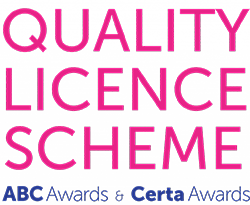Are you considering enquiring? Please note: All courses listed are paid courses, though many providers offer flexible payment plans. Speak to a course advisor to find out more by making an enquiry today.
Course overview
- Understand how to provide counselling for children and adolescents.
- Explore the aims of cognitive behavioural therapy.
- Gain an insight into drug, solvent and alcohol abuse counselling.
- Identify the models and approaches in counselling and psychotherapy.
- Study from home, at your own pace.
What is counselling?
Counselling can take all sorts of different forms, depending on the person’s needs and what type of therapy may be suitable. Most therapy will be planned and occur in regular sessions.
People can see a counsellor on their own, but they can also see them with family, partners, or a group of people with a similar issue. During the session, the counsellor may run through specific exercises to help with the problem, or they may just make the person(s) talk more generally about how they’re feeling.
The therapist will be impartial but they will also be understanding. They will give options and information on what things may help the problem, but they won’t tell them what they should think or do.
During this Counselling Studies QLS Level 4 course, you will explore the development of counselling and psychology, the psychodynamic approach, cognitive behavioural therapy (CBT), and much more.
Course fees:
Online – £1,229
Study Pack – £1,269
- Monthly instalment plan available
- No government funding available for this course
Job outcomes
- Mental health counsellor
- School counsellor
- Grief counsellor
- Marriage and family therapist
- Rehabilitation counsellor
Study method
- Online
- Blended
- In-class

coursesonline.co.uk customers are now eligible to apply for an XO Student Discount Card.
Enrol in a course today to unlock exclusive deals.
Duration study load
Once enrolled, you will have three years to complete this bundle, which will allow you to work at your own pace, without the pressure of tight deadlines. You will also receive 3 years of tutor support, so you can feel confident that you’ll get the help you need. This bundle will take you approximately 560 learning hours. Studying around your work and family commitments has never been easier.
Entry requirements
You do not need any previous knowledge to enrol on this bundle.
Course features
- Dedicated personal tutor support
- Dedicated learner services
- Assignment marking and feedback
- Free CV critique service
- Free employability guide to help you impress future employers
- Free XO Student Discounts membership
- * Comprehensive study guide
- * Exclusive Open Study College Pen
- * Student notebook
Not included with the online study option
Assessment
This bundle is assessed through a series of written assignments, which are submitted to and marked by your tutor. There is no external examination required.
Who's it for?
- Learners who are working in a counselling role and want to boost their knowledge and skills.
- Those who want to kick-start their career in counselling.
Delivery
You will study this course through distance learning, which will enable you to learn when and where you want. You can study from home or at work; it is completely up to you. All your materials will be posted or emailed to you online, whichever you choose. You will also receive our tutor support by email, so help is only a click away!
Subjects
- Theoretical perspectives
- Development of counselling and psychotherapy
- Similarities and differences between counselling and psychotherapy
- Counselling and psychotherapy in context
- Building the client-therapist relationship
- Competency skills
- Communication
- Applications of skills
- Transference and countertransference
- Monitoring generic skills
- The psychodynamic approach
- Humanist/person-centred approach
- Personal awareness
- Experiential focusing
- Behavioural and cognitive approaches
- Using behavioural methods
- The systems model
- The psychosocial/life stage model
- Cognitive behavioural therapy (CBT)
- Assessments Strategies and Skills in CBT
- Relationship counselling
- Family counselling
- Bereavement counselling
- Addiction counselling
- Neuro-linguistic programming (NLP)
- Brief therapy
- Transactional analysis (TA)
- Gestalt therapy
- Business issues
- The therapy contract
- The psychotherapists responsibilities
- Health, safety and regulations
- Client assessment
- Aims of CBT
- Basic cognitive principles
- The triadic structure of CBT
- The therapeutic relationship
- CBT Delivery
- CBT Assessment
- Core skills
- Describing problems
- Past history
- Formulation
- Measurement
- The Socratic Method
- The client as the therapist
- Models of memory
- Behaviour experiments
- Discussion about methods
- Planned behavioural experiments
- Physical Techniques
- Depression
- Therapeutic considerations
- Suicidal thoughts
- Anxiety
- Obsessive compulsive disorder (OCD)
- Post-traumatic stress disorder (PTSD)
- Panic disorder
- Phobias
- Eating disorders
- Trauma
- Anger
- Psychosis
- Relationships
- Substance misuse
- Common core themes
- Alternative methods of delivery
- Group CBT
- Schemata
- Compassion-based CBT
- Mindfulness-based CBT
- Group work
- Why evaluate CBT?
- Using statistics
- Questionnaires
- Evaluation of services
- Supervision
- History of counselling
- Theories and theorists
- Jung
- Rogers
- Skinner
- Ellis
- Maslow
- Defining childhood
- Historical perspective of childhood
- Child development related to counselling
- Language
- Cognitive structure and input
- Vision
- Hearing
- Socialisation
- Attachment
- Bowlby’s theory
- Approaches within cognitive behavioural therapy
- The ABC Model
- The triadic structure of CBT
- The Socratic method
- Counselling techniques
- Further cognitive strategies
- Organising sessions and programmes
- Reading emotional feelings in behaviour
- Behaviour and beliefs
- Background
- The inner self
- PCT process
- PCT application
- PCT and transference
- The child-counsellor relationship
- Ethics for counselling
- BACP ethical framework
- CPCAB model of service levels
- Legislation and consent
- The play therapy room
- Selecting media
- Imagination
- Setting up a practice
- Exploring substance misuse
- Review of counselling skills and theory
- Psychodynamic approach
- Behavioural and cognitive approach
- Humanist approach
- What is dependence?
- Theory specific to substance dependence
- The counselling relationship: ethical considerations
- Classification and effects of psychoactive drugs
- Some background physiology
- Working with substance misusers
- Assessment and approach
- Basic assessment criteria
- Initial session suggestions
- Introduction and discussion
- Models and approaches
- Pathological components of alcohol misuse
- Working with people who have alcohol related problems
- The twelve-step approach
- Specific issues
- Counselling tools
- Challenges
- Alcoholism
- Theoretical perspectives
- Pavlov and Skinner
- Behaviour and learning review
- Case formulation
- Analogies
- Modelling
- Role reversal
- Imagery
- Problem-solving skills
- Behavioural tasks
- Ending the CBT programme
- Theoretical perspectives
- Karl Jung
- Object relations and ego psychology
- The psychodynamic model in substance and abuse counselling contexts
- Brief psychodynamic therapy
- Rogers and the person-centred approach
- Maslow’s hierarchy of needs
- The existentialist approach
- Case studies
- Discussion about the person-centred approach
About Open Study College
Established in 2007, Open Study College is a distance learning course provider that has helped over 130,000 learners take the next step towards achieving their ambitions.
With over 700 courses, ranging from A Levels and GCSEs through to childcare and beauty therapy — there’s something for everyone. All of their qualifications are independently accredited by established awarding organisations, fully equipping you for the future.
Why choose Open Study College?
Whether you’re in full-time work or have family commitments, distance learning at Open Study College provides the flexibility to create a study schedule that fits around the busy demands of day-to-day life. Accomplish your goals — at your pace, on your terms.
You will also receive the best possible support from the uber-friendly learner services team, as well as guidance from expert tutors who are on hand to answer any queries you might have throughout the duration of your course.
What makes Open Study College different?
Born from a genuine passion to improve the lives of others through education, Open Study College is a family-run business with decades of experience in the education and distance learning industry.
Seeking a career change? Didn’t get the exam results you wanted? Looking to learn a new skill? Enrol on one of their courses today and forge the future you’ve always wanted — all from the comfort of your own home!
Additional benefits
As an Open Study College learner, your benefits will include an XO Student Discounts membership, exclusive savings on future courses and a complete range of career support — including a free CV critique service, a free employability guide, and job-hunting help from their recruitment experts.




